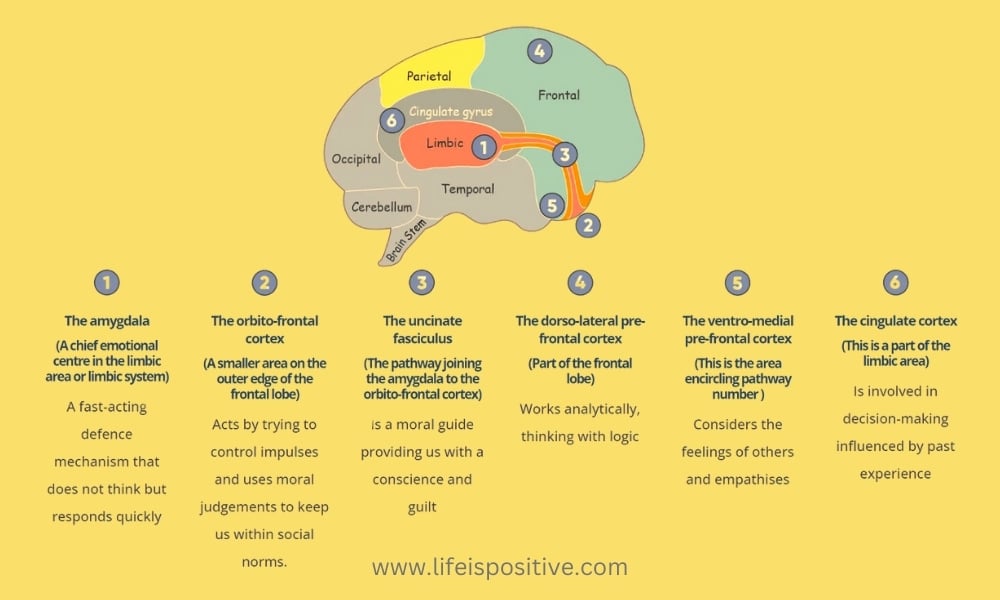|
Getting your Trinity Audio player ready...
|
Ever wonder why you sometimes overreact, doubt yourself, or make choices you later regret—even when you know better? That’s where understanding The Chimp Paradox comes in. So, what is The Chimp Paradox? It’s a fascinating psychological model by Dr. Steve Peters that explains the inner conflict between your logical self and your emotional “chimp” brain.
This inner chimp isn’t bad—it’s just reactive, protective, and often running the show without you realizing it. Learning to recognize and manage this part of your mind can lead to deeper self-awareness, emotional balance, and real spiritual growth.
What is the Chimp Paradox?
The Chimp Paradox is a fascinating psychological model developed by Dr. Steve Peters, designed to help you understand and manage your mind. At its core, it explains the internal struggle between your emotional, instinctive side (your “Chimp”) and your rational, logical side (your “Human”).
The Chimp represents your impulsive, reactive self—it’s the part that panics, overthinks, or lashes out. Meanwhile, the Human is calm, logical, and focused on long-term goals.

The paradox lies in learning to manage your Chimp without suppressing it. After all, your Chimp can be a great ally when tamed—it brings energy, passion, and quick responses when needed.
Understanding the Chimp Paradox helps you navigate stress, improve decision-making, and build healthier habits. It’s not about eliminating your emotional side but working with it to live a more balanced and fulfilling life.
Read: 6 Best Psychology Books on Human Behavior
How Does the Chimp Paradox Affect You?
The Chimp Paradox isn’t just an abstract concept—it’s a framework that influences your daily life in more ways than you might realize. At its core, it highlights the ongoing tug-of-war between your emotional Chimp and your logical Human.
Ever snapped at someone and instantly regretted it? That’s your Chimp in action, acting on impulse to protect or defend. On the flip side, when you take a deep breath and respond thoughtfully, your Human is in control. This constant interplay affects how you handle stress, relationships, and decision-making.
Left unchecked, your Chimp can lead to anxiety, poor choices, and unnecessary conflict. But when managed effectively, it becomes a powerful force—providing energy, drive, and even intuition.
Recognizing how the Chimp Paradox operates in your mind gives you the tools to navigate life with more awareness, balance, and self-control.
1. Emotional Reactions
One of the key aspects of the Chimp Paradox is its impact on emotional reactions. When you feel overwhelmed, angry, or anxious, it’s often your Chimp taking over.
This part of your brain is driven by survival instincts and emotions, which can lead to knee-jerk reactions rather than calm, measured responses.
2. Decision Making
Another area where the Chimp Paradox plays a role is in decision-making. Your Chimp can push you towards quick, emotional decisions, while your Human brain prefers to weigh options and consider consequences.
Understanding the Chimp Paradox can help you balance these two aspects of your mind, leading to better, more deliberate choices.
Strategies to Manage Your Chimp
Now that you know what the Chimp Paradox is, how can you manage your inner Chimp effectively? Here are some strategies to help you regain control:
1. Step One: Awareness—Taming Your Inner Chimp
The first step in emotional freedom is awareness. Before you can change anything, you have to see it clearly—and that includes your inner chimp. According to The Chimp Paradox, your chimp represents the emotional, impulsive part of your brain that often reacts before your wiser self can respond.
By becoming aware of when your chimp is driving the show—like during fear, anger, jealousy, or insecurity—you can pause, breathe, and choose a different path. This awareness isn’t about judgment; it’s about compassion. Your chimp isn’t your enemy—it’s just a part of you that needs gentle guidance.
Read: Heal Subconsciously, Transform Your Life
2. Practice Mindfulness
Mindfulness is more than just sitting still—it’s about being fully present with your thoughts, feelings, and surroundings without judgment. When you practice mindfulness, you create space between stimulus and response, which is exactly what helps you manage your inner chimp.

In The Chimp Paradox, Dr. Steve Peters explains that your “chimp” is the reactive, emotional part of your brain. Mindfulness gently quiets that part, allowing your rational, higher self to take the lead. A few deep breaths, a moment of stillness, or a mindful walk can help bring you back to center, where peace and clarity live.
3. Coping Strategies for Chimp-Driven Reactions
We’ve all had those moments—saying something in the heat of the moment or spiraling into anxiety without warning. These are classic signs of your emotional brain taking over. The Chimp Paradox calls this your “inner chimp,” the impulsive, fear-driven part of your mind.
To manage it, you need grounded coping strategies. Start with a simple pause. Breathe deeply. Name what you’re feeling without judgment. Journaling, stepping away, or speaking to someone calm can also help soothe the inner chaos. Over time, you’ll learn to respond from your higher self, not your inner chimp.
4. Seek Professional Guidance
Sometimes, managing emotions, patterns, and inner conflicts takes more than self-reflection—it takes support. If you’re struggling to navigate reactive behavior or recurring thought loops, seeking professional guidance can be a powerful next step. In The Chimp Paradox, Dr. Steve Peters emphasizes the value of understanding your inner chimp, but also reminds us that we don’t have to do the work alone.
Therapists, coaches, or counselors can help you unpack deep-rooted habits and teach you tools to manage your emotional brain. Healing is a journey, and having someone walk beside you can make all the difference.
Read: Defeat Narcissists: The Grey Rock Method
Final Thoughts on What Is The Chimp Paradox
At its heart, The Chimp Paradox offers a simple yet powerful truth: you are not your thoughts, and you are not your emotions—you are the one observing them. Understanding your inner chimp helps you separate instinctive, reactive patterns from your higher, more conscious self.
So, what is The Chimp Paradox really about? It’s a tool for emotional mastery. It teaches you how to manage the part of your brain that acts out of fear, insecurity, or impulse, so you can live with more peace, purpose, and presence.
Whether you’re navigating stress, conflict, or self-doubt, this model invites you to pause, reflect, and choose a more aligned response. It’s not about silencing your chimp—it’s about learning how to live in harmony with it.
When you lead with awareness and compassion, your mind becomes a friend, not a battlefield. And that’s a spiritual practice worth embracing.
For more empowering content, connect with our vibrant community here ➡️ Social Media.

